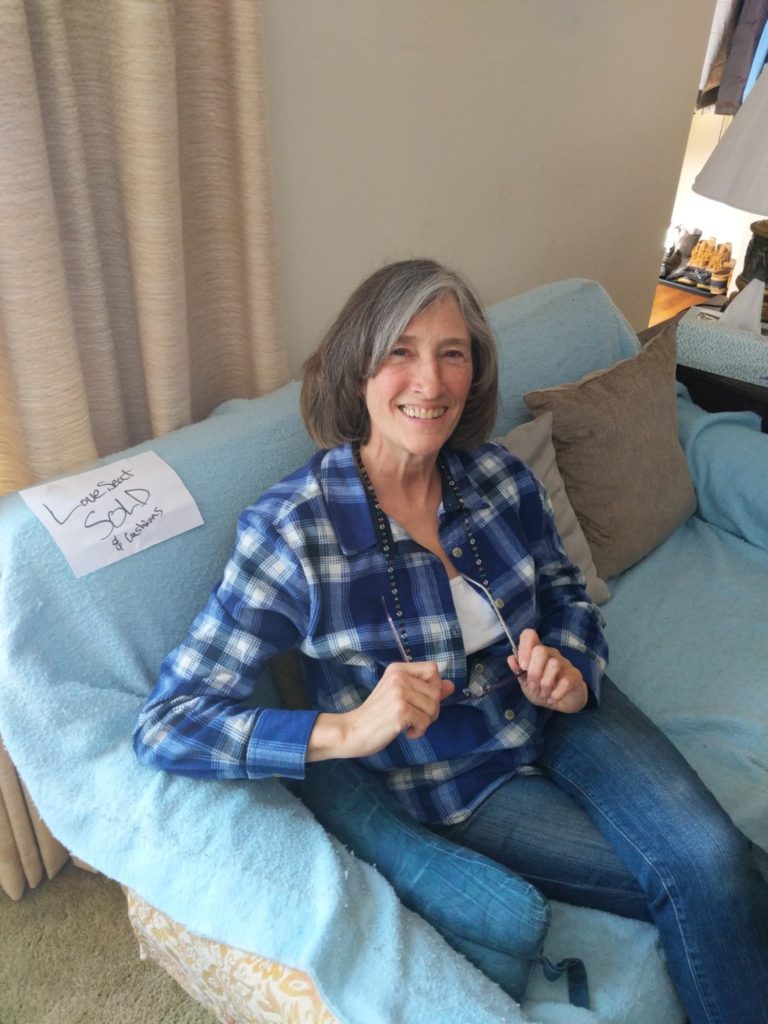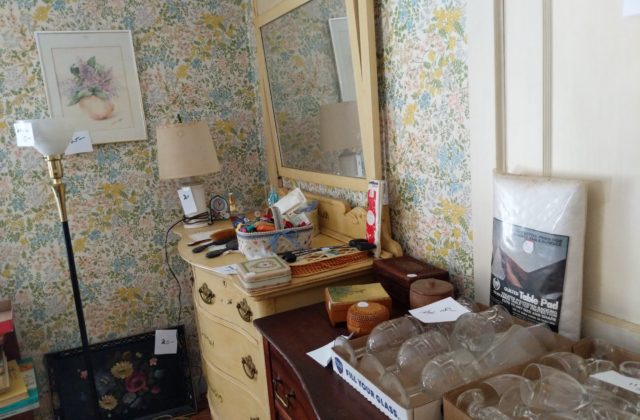Dealing With a Loved One’s Legacy of Stuff
By Kelly Kandra Hughes
“If we don’t start taking care of Mother Earth, she’s going to stop taking care of us,” says Norfolk resident Ann Moseley. These thoughts are forefront in Moseley’s mind these days as she recently went through the process of dealing with her father’s and stepmother’s belongings. They both passed away at the end of 2017 and Moseley was left their house on Laurel Way. At one point, she had dozens of garbage bags filled with discarded, broken, unwanted and useless items, including window shades with holes in them and nearly 70 years of National Geographic magazines. Some bags were so heavy, Ann dropped them out an upstairs window rather than drag them down the stairs for their trip to the transfer station.
To help her deal with her parents’ stuff, Moseley hired an estate appraiser from Southington, Kathleen Connolly, who has seen situations that sent even more to landfills. “Two 30-yard dumpsters is the average for an estate sale and clean-out,” says Connolly. “There are cases when it takes more than two dumpsters, as every situation is different.”
It’s been over a year since Ann lost both her father and stepmother and she’s just now getting closure. “It was more than a full-time job,” Ann says of dealing with her parents’ belongings. “I almost could not work while doing this.”
“The kids will take care of it.” Those were the famous last words of Ken Moeckel, longtime Norfolk resident who passed away in October, 2017. His wife, Barbara, and their three children have also been dealing with what to do with stuff after the death of a loved one. Barbara Moeckel has found things in the basement she didn’t even know her husband had. Now she and her children have to figure out what to do with all of it. “I feel sorry for the kids,” says Moeckel. “There are things I need to be sorting, the knickknacks and other stuff. I don’t know why I’m not. I’m waiting for inspiration, I guess.”
According to Moeckel, part of the problem is she doesn’t know if certain items will be easy to get rid of. Take their china cabinet, for instance. There are crystal glasses in there that she and Ken received as wedding presents in 1952, and they’ve never been used. “[Younger generations] aren’t interested in that sort of thing. But they have to be gotten rid of.”
Another part of the problem is the emotional attachment to stuff, particularly when it’s related to family. “I’d get misty-eyed,” says Ann of having to sort through everything. “Everything weighed heavy on my mind. That’s why I brought in someone to help me. [Kathleen Connolly] saved my life. I couldn’t have done it without her.”
As an expert in appraisals, Connolly understands the problems inherent in dealing with family estates. When her clients show reluctance to parting with an item, she’ll encourage them to keep it. They almost always realize they don’t want to; yet at the same time they’ll be heartbroken at how little value it actually sells for. “We have to hope and pray people say, ‘Gee, I could use that.’It’s hard to tell people there’s not as much interest these days.”

When Ann Moseley held an estate sale a few weeks ago, over 40 people were waiting outside the door at 9 a.m. in 15-degree weather. Ann was surprised at what sold, like her father’s artwork from elementary school. Of the 300 records on offer, only two sold at one dollar each. Over thirty-five flats of glassware, vases, bone china, and tea cups didn’t yield a single sale. They ended up being donated to the Thrift Shop of Auxiliary for Community Health, which gives back to the Norfolk Lions Club.
“People have no idea what’s valuable,” says Connolly. And popular antique shows on television don’t help the situation. “These shows carefully select and film only the most interesting and valuable. This sometimes gives the viewer the idea that all antiques are worth a fortune.”
The best advice Connolly has for dealing with a family estate is to hire someone with appraisal knowledge and experience. Ask for recommendations and credentials. “A good estate appraiser will steer someone in the right direction and keep any valuables out of the dumpsters.”
Ann Moseley is nothing but grateful for it all to be gone. “What’s the point of keeping all these items that someone else can use? You can’t use it in the afterlife. God’s not gonna say, ‘You had all these wonderful antiques.’Being free of all this stuff means I can now do more things for myself and other people. I can volunteer my time. I can go for walks. I feel lighter. I’m so glad I no longer have to worry about it.”

